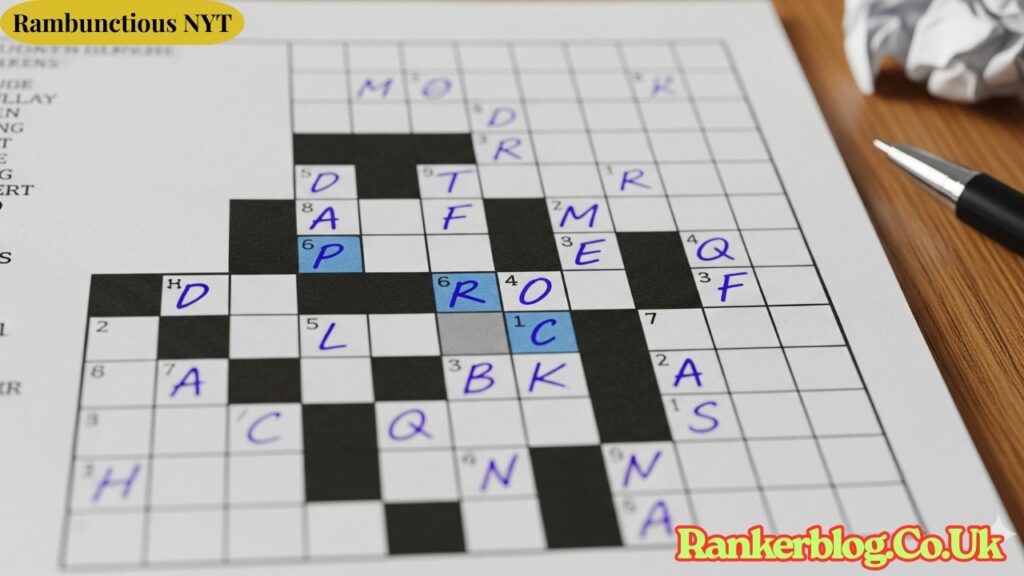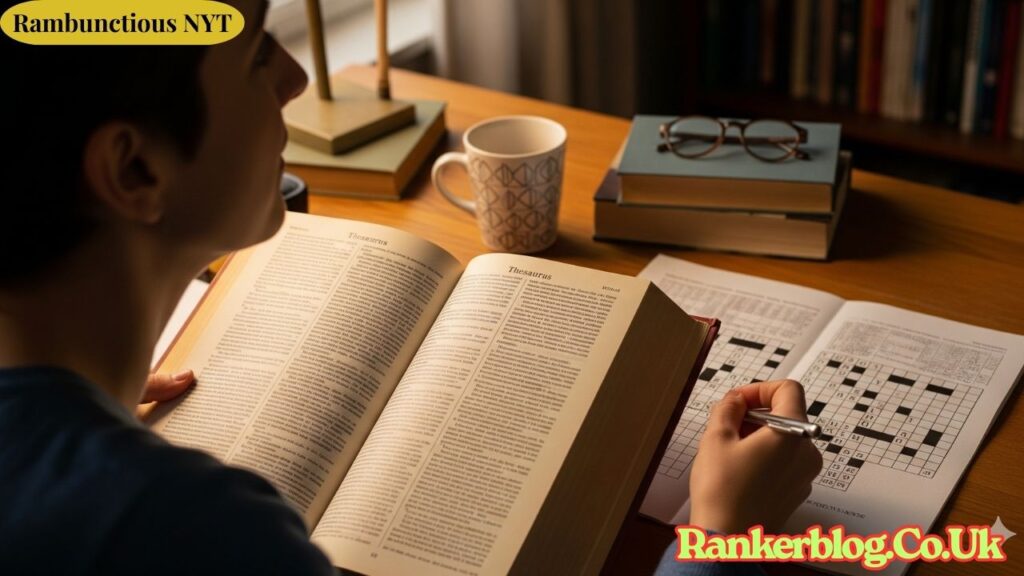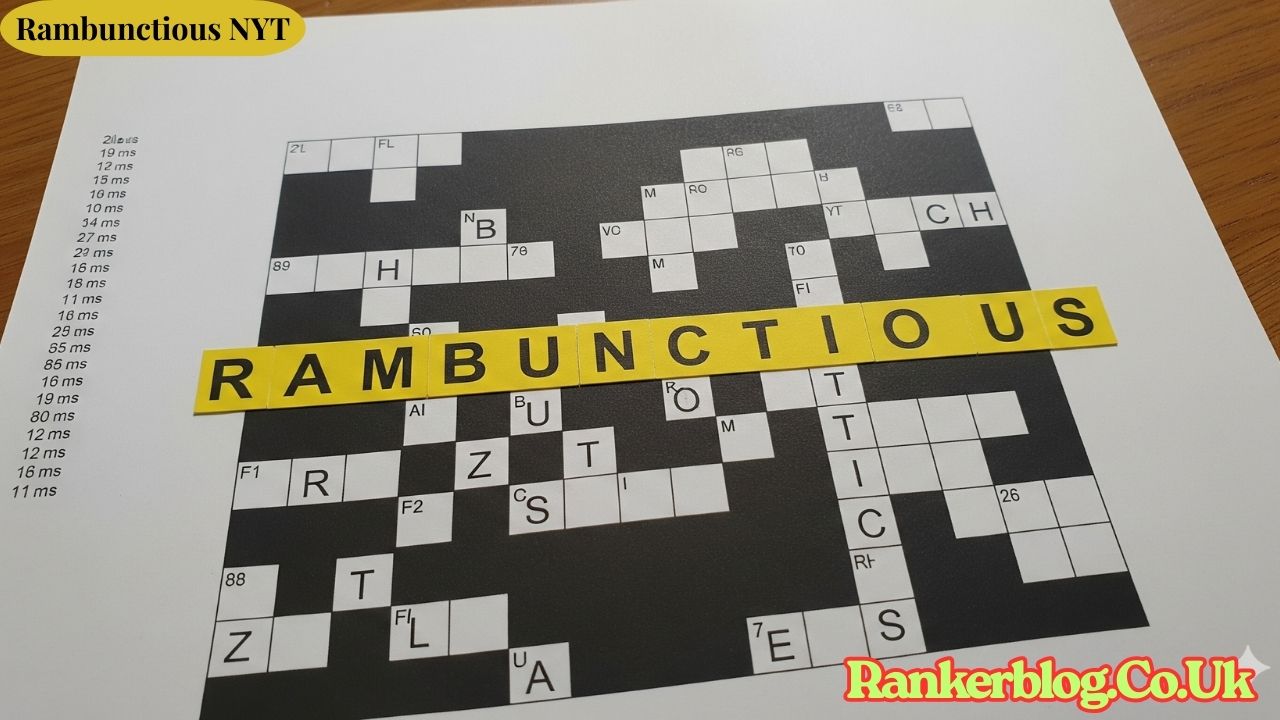If you’re a crossword enthusiast who regularly tackles the New York Times puzzle, chances are you’ve encountered the word “rambunctious” as a clue. This lively term appears frequently across various puzzle formats, from the quick daily mini to the full-sized weekend challenges. Understanding how this clue works can significantly improve your solving experience and help you crack those tricky grid squares with confidence.
Understanding the NYT Crossword Context
Common Clue Appearances
The rambunctious NYT clue has become a staple in crossword puzzles, consistently appearing across various formats. Solvers frequently encounter this clue in the popular, rambunctious NYT Mini format, where space constraints demand concise answers. The puzzle makers at the Times have embraced this word because it offers multiple solution possibilities while maintaining that perfect balance of challenge and solvability.
When working through a rambunctious NYT crossword, players typically find that the answer “ROWDY” fits perfectly in five-letter slots. This makes it an ideal choice for constructors who need reliable fill that doesn’t stump solvers completely. The clue appears in various crossword puzzle formats, ranging from bite-sized mini versions to full-scale Sunday editions.
Strategic Puzzle Placement
Crossword constructors often position this clue as a down entry, particularly in the 1D spot where it can anchor the entire upper section of the grid. This strategic placement works well because “rambunctious” naturally connects with common crossing words. The clue serves as standard crossword fare across multiple publications, though the NYT rambunctious version tends to be the most recognizable among regular solvers.
The word frequently appears as part of daily crossword challenges, giving solvers a familiar touchpoint even when other clues prove more challenging. This consistency makes it a reliable entry point for those moments when you need to gain a foothold in a particularly tough grid.
Word Analysis and Etymology

Definition and Origins
At its core, “rambunctious” describes behavior that’s energetic, noisy, and somewhat out of control, though usually in a playful rather than destructive way. The word carries an American flavor, having evolved as a variation of the British term “rumbustious” during the late 1700s. This etymological background adds depth to the clue’s appeal for crossword constructors who appreciate words with fascinating histories.
The definition encompasses being “rough or noisy in a high-spirited way,” which perfectly captures the essence of boisterous behavior without negative connotations. This nuanced meaning allows puzzle makers to craft clues that feel natural while pointing toward specific answers.
Letter Count Considerations
One reason this clue works so well in crosswords is its flexibility regarding answer length. Crossword answers for “rambunctious” can range from three letters all the way up to thirteen, depending on the specific synonym required. The word itself contains twelve letters, starting with R and ending with S, but rarely appears as a grid answer due to its length.
This variability gives constructors multiple options when building their grids, making “rambunctious” a versatile clue that adapts to different puzzle needs and constraints.
Common Crossword Solutions

Primary Answer Choices
The most popular crossword answer for “rambunctious” is undoubtedly “ROWDY,” a five-letter solution that fits perfectly in standard grid patterns. This answer captures the essential meaning while providing the proper letter count for most puzzle layouts. Solvers who recognize this connection often find themselves moving through grids more smoothly.
Other common shorter variations include “WILD,” “LOUD,” and “UNRULY,” each offering different letter counts for various puzzle situations. For longer answers, constructors might opt for “BOISTEROUS,” which provides a more elaborate synonym while filling larger grid spaces.
Synonym Patterns in Puzzles
Crossword creators draw from a rich vocabulary of synonyms when crafting clues around “rambunctious.” Words like “boisterous” appear frequently, along with “energetic,” “raucous,” and “unruly.” These alternatives help prevent puzzle repetition while maintaining the core meaning that solvers expect.
The variety extends to descriptors like “noisy,” “rough,” and “turbulent,” each bringing slightly different shades of meaning while remaining true to the fundamental concept of spirited, uncontrolled behavior.
Crossword Solver Resources

Solution Databases
Multiple crossword solver websites maintain extensive databases tracking clues like “rambunctious” and their various answers. These resources prove invaluable for both casual solvers and serious competitors who want to study pattern recognition. The regular appearance of this clue in major publications makes it a well-documented entry in crossword archives.
Historical answer tracking reveals how different publications prefer different solutions, with some favoring shorter answers while others embrace longer synonyms. This data helps solvers develop intuition about what type of answer to expect based on the publication and puzzle format.
Publication Patterns
Beyond The New York Times, this clue appears regularly in other major publications, including The Daily Celebrity, The Telegraph, and The LA Times crosswords. The mini crossword format has particularly embraced this type of clue because it provides just the right level of challenge without being overwhelming.
Daily puzzle rotation ensures that solvers encounter this clue type regularly, helping build familiarity and confidence over time. This consistency across publications makes mastering the “rambunctious” clue a worthwhile investment for any crossword enthusiast.
Practical Usage and Strategy
Behavioral Context
The word “rambunctious” typically describes groups of energetic people, particularly young individuals engaged in high-spirited activities. This usage appears in phrases like “packs of rambunctious young people,” where the word conveys enthusiasm rather than problematic behavior. Understanding this context helps solvers grasp the positive connotations that crossword clues often emphasize.
The behavioral description encompasses chaotic energy that isn’t necessarily negative, making it perfect for crossword clues that need to suggest liveliness without implying anything truly disruptive or harmful.
Solving Strategies
When encountering “rambunctious” as a clue, experienced solvers immediately look for five-letter slots, knowing that “ROWDY” represents the most likely answer. However, competent solvers also consider alternative synonyms based on available letter counts and crossing letters that might already be filled in.
Cross-referencing letters from intersecting words helps narrow down the possibilities quickly. If the third letter appears to be an “W,” for instance, “ROWDY” becomes the obvious choice. This systematic approach turns what might seem like a challenging clue into a manageable step toward completing the entire puzzle.
Conclusion
Mastering the “rambunctious” clue opens doors to more confident crossword solving across multiple publications and formats. Whether you’re tackling a quick mini puzzle or working through a challenging weekend grid, recognizing the patterns and common answers associated with this clue will serve you well. The key lies in understanding both the word’s meaning and its typical crossword applications, giving you the tools needed to succeed regardless of which specific synonym the constructor has chosen.
Also Read: Master Wordle with Try Hard Guides Advanced Solver Strategies

